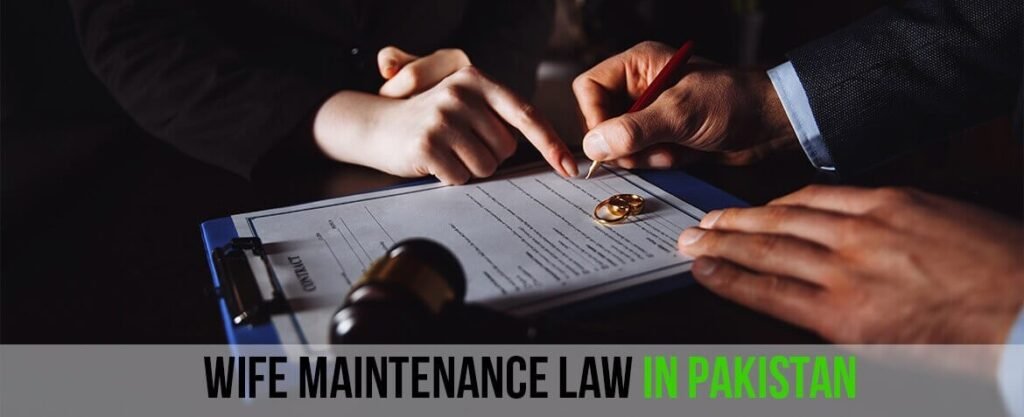Legal Advocacy: The Essential Role of Lawyers in Wife Maintenance Law
Legal advocacy plays a pivotal role in shaping the landscape of wife maintenance, ensuring fairness, and upholding the rights of individuals. This comprehensive exploration delves into lawyers’ essential part in wife maintenance cases, examining the intricate aspects of their advocacy, the impact on clients, and the broader societal implications.
Understanding Wife Maintenance: A Primer
Before delving into the role of lawyers, it’s crucial to establish a foundational understanding of wife maintenance. This section explores the legal principles that govern spousal support, alimony, and financial obligations post-divorce. It sets the stage for the complexities that lawyers navigate on behalf of their clients.
The Legal Landscape: Navigating Wife Maintenance Laws
Lawyers specializing in wife maintenance operate within a dynamic legal landscape. This section provides insights into the diverse laws and regulations governing the care, exploring the variations that exist globally and within different jurisdictions. Understanding these legal nuances is fundamental to the effective advocacy carried out by lawyers.
The Essential Role of Lawyers in Wife Maintenance
- Legal Guidance and Counsel
Lawyers serve as beacons of legal guidance, providing clients expert advice on their rights and entitlements in wife maintenance cases. This section explores how lawyers offer strategic counsel, empowering individuals to make informed decisions about their financial future.
- Advocacy for Fairness
At the core of their role, lawyers advocate for fairness in wife maintenance proceedings. This involves negotiating on behalf of their clients to secure fair and equitable financial arrangements. The section delves into the strategies lawyers employ to achieve just outcomes, considering factors such as income, assets, and the needs of each party.
- Courtroom Representation
In many instances, wife maintenance cases find their way into courtrooms. As skilled legal representatives, lawyers argue points, present evidence, and advocate for their client’s interests before judges. This section explores the courtroom dynamics and the persuasive skills lawyers employ to secure favorable rulings for their clients.
- Negotiation and Settlement
Beyond courtrooms, lawyers play a crucial role in out-of-court negotiations and settlements. This involves navigating complex financial discussions, reaching agreements through mediation, and ensuring their clients’ needs are met. The section sheds light on the art of negotiation and the delicate balance lawyers must strike to achieve optimal outcomes.
The Humanitarian Aspect: Empathy in Action
Beyond the legal intricacies, lawyers involved in wife maintenance often become pillars of emotional support for their clients. This section delves into the empathetic dimension of legal advocacy, exploring how lawyers navigate their clients’ emotional challenges during divorce and maintenance proceedings.
Impact on Clients: Stories of Legal Resilience
Highlighting real-life cases, this section illustrates the tangible impact of legal advocacy on individuals going through wife maintenance. Personal stories of legal resilience showcase how lawyers have made a difference in the lives of their clients, securing fair financial arrangements and empowering individuals to move forward with confidence.

Understanding Maintenance: A Complex Legal Landscape
Before delving into the role of lawyers, it’s essential to comprehend the intricate legal landscape of maintenance. This section briefly overviews the legal principles governing spousal support, alimony, and financial responsibilities post-divorce. It sets the stage for the complexities lawyers navigate as they seek to balance the scales in pursuing justice.
The Role of Lawyers: Arbiters of Justice
- Legal Guidance and Strategic Counsel
Lawyers serve as trusted guides for individuals navigating the complexities of maintenance cases. This involves offering strategic counsel that considers each client’s unique circumstances. Lawyers provide a roadmap for their clients, explaining their rights, obligations, and potential outcomes.
- Advocacy for Fairness
At the core of their role, lawyers act as advocates for fairness. This involves carefully examining financial circumstances, needs, and contributions to secure a just and equitable maintenance arrangement. The section explores the strategies lawyers employ to ensure fairness, considering factors such as income, assets, and the well-being of each party.
- Negotiation and Mediation Skills
Lawyers often navigate maintenance cases outside the courtroom through negotiation and mediation. This requires a delicate balance of assertiveness and diplomacy as lawyers work to find mutually agreeable solutions. The section examines the negotiation and mediation skills lawyers employ to strike fair deals that consider the best interests of all parties involved.
- Courtroom Representation
When negotiations fail, maintenance cases may proceed to the courtroom. Lawyers, as skilled representatives, must present compelling cases before judges. This involves meticulously presenting evidence, persuasive arguments, and a deep understanding of legal precedents. The section sheds light on the courtroom dynamics and the pivotal role lawyers play in advocating for their clients.
Navigating Complexity: The Art of Balancing Legal Scales
Maintenance cases are inherently complex, often involving intricate financial details, emotional nuances, and legal subtleties. This section explores how lawyers navigate this complexity, providing insight into the methodologies they employ to balance the legal scales effectively.
- Financial Expertise
Lawyers specializing in maintenance cases must possess a profound understanding of financial intricacies. This involves analyzing income, assets, liabilities, and potential future needs. The section explores how lawyers leverage their financial expertise to build compelling cases that advocate for fair maintenance outcomes.
- Emotional Intelligence
Beyond legal acumen, lawyers must navigate the emotional complexities inherent in maintenance cases. This involves understanding and empathizing with the emotional toll divorce and maintenance proceedings can take on individuals. The section sheds light on the importance of emotional intelligence in achieving outcomes that consider all parties’ well-being.
Challenges and Ethical Considerations: Navigating Legal Hurdles
While lawyers strive to balance the scales of justice, they encounter challenges and ethical considerations unique to maintenance cases. This section explores common hurdles lawyers face, such as managing conflicting interests, maintaining confidentiality, and addressing power imbalances between parties.
Case Studies: Illustrating the Arbiter’s Role in Practice
Drawing from real-life cases, this section provides illustrative examples of how lawyers act as arbiters of justice in maintenance cases. These case studies showcase lawyers’ diverse challenges and strategies to secure fair and just outcomes for their clients.
The Broader Impact: Lawyers Shaping Legal Precedents
Beyond individual cases, lawyers engaged in maintenance law contribute to the evolution of legal precedents. This section examines how their advocacy and strategic approaches influence the development of maintenance laws, shaping the broader legal landscape.



Beyond the Individual: Lawyers Shaping Wife Maintenance Laws
Lawyers engaged in wife maintenance cases contribute to individual outcomes and the evolution of legal frameworks. This section examines how legal advocacy influences the development and reform of maintenance laws, contributing to broader societal changes.
Legal Empowerment: Strengthening Women through Maintenance Cases
With a focus on women’s empowerment, this section discusses how lawyers advocate for women’s rights in wife maintenance cases. It explores initiatives taken by legal professionals to address gender-based financial disparities and foster a legal environment that promotes equality.
